In reviewing my past blog posts, I notice that reflection is often found as an important step to a larger concept. In general, reflection is needed to gather a baseline of current practices and informs either knowledge gained or next steps for improvement.
For educators, reflection can help guide instructional practice. In the “Applying Formative Assessment in Professional Development” post, formative feedback can be used a vehicle to promote both self- and peer-reflection in professional development which leads to a reduction in time, energy, and resources expended when compared to a formal, summative evaluation. The researchers quoted in the “Peer Coaching Focus- For Teacher or Student Outcome” post, agree with the utility of reflection as one of the main indicators for continuing education success is time allotted for educators to reflect.
When reflection is offered as part of a process, an individual can also be better informed of their own learning and/or skill deficits which can help identify continued professional development needs. In “Instructional Coaching: Using Rubrics to Quantify Qualitative Data for Improved Teaching Outcomes” self-reflection occurs after reviewing compiled feedback from students on assignments and/or teaching practices. Under these circumstances, instructors can use self-reflection to gain insights in practices that are effective, define areas of improvement, understand how the students are learning, and address whether or not the instructor’s expectations of teaching and learning have been met. One of advantages of using this type of process is that the feedback is factual rather than emotional, or based off solely the educator’s experience.
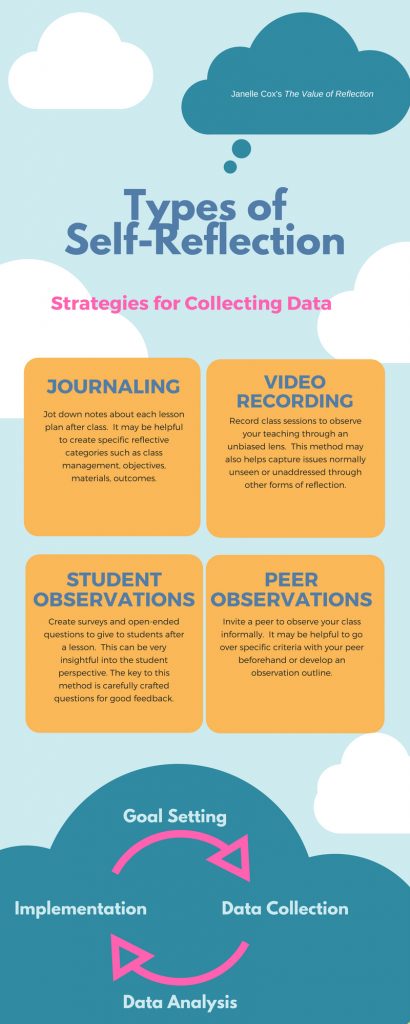
Peer reflection can also be a helpful mechanism to gather insight into instructional practice. Because it is a collaborative event, it involves a social construct for learning. In the “Creating a Peer Coaching Culture” post, several key components of a successful peer coaching session identified by Dr. Gotteman involved both self and group reflection. Reflection in this process helps to identify areas of improvement for the educator that is being coach and helps both peers establish a starting point for improvement.
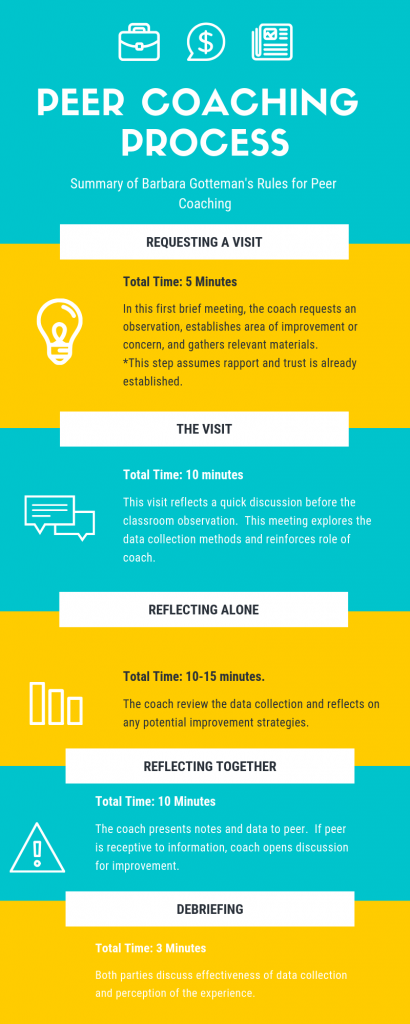
Les Foltos agrees with this idea as he identifies reflection as both a method to conduct peer coaching and as a part of the peer coaching cycle. Reflection is crucial to understanding next steps when looking at the appropriate length of a peer coaching relationship. This introduces a cyclical nature to the coaching process.
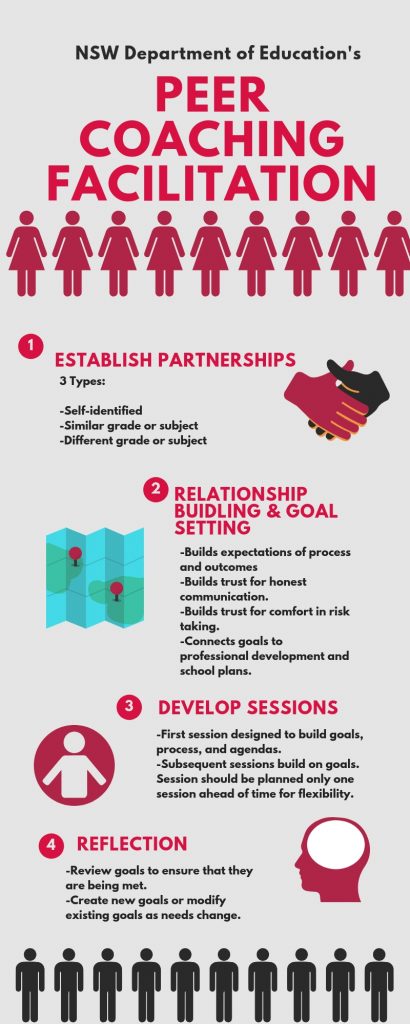
Students benefit from the reflection process similarly. Reflection can not only give students insights and help track progress of their own learning, but according to the “Co-learning, Co-Teaching, and Cogenerative Dialogues to Improve Learning and Teaching Outcomes” post, when students are empowered to share their voice for the entire teaching-learning dynamic, it becomes key in identifying areas where students still need help through cogenerative dialogues.
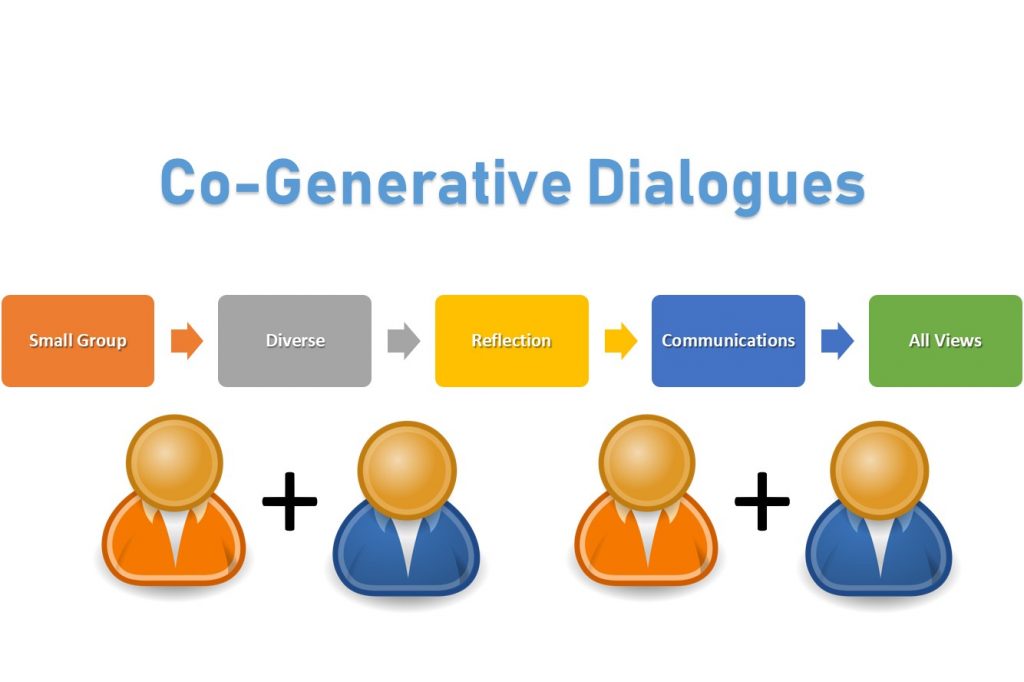
One way to teach students how to give good constructive feedback is by using models that require reflection as part of the process. The RISE Model provide students the opportunity to reflect before any additional feedback can be given. By reflecting first and commenting second, students can build a bigger picture and better understanding of the works that they are evaluating. The RISE model can also be used to guide self-reflection of student’s own works to inform an improved process.
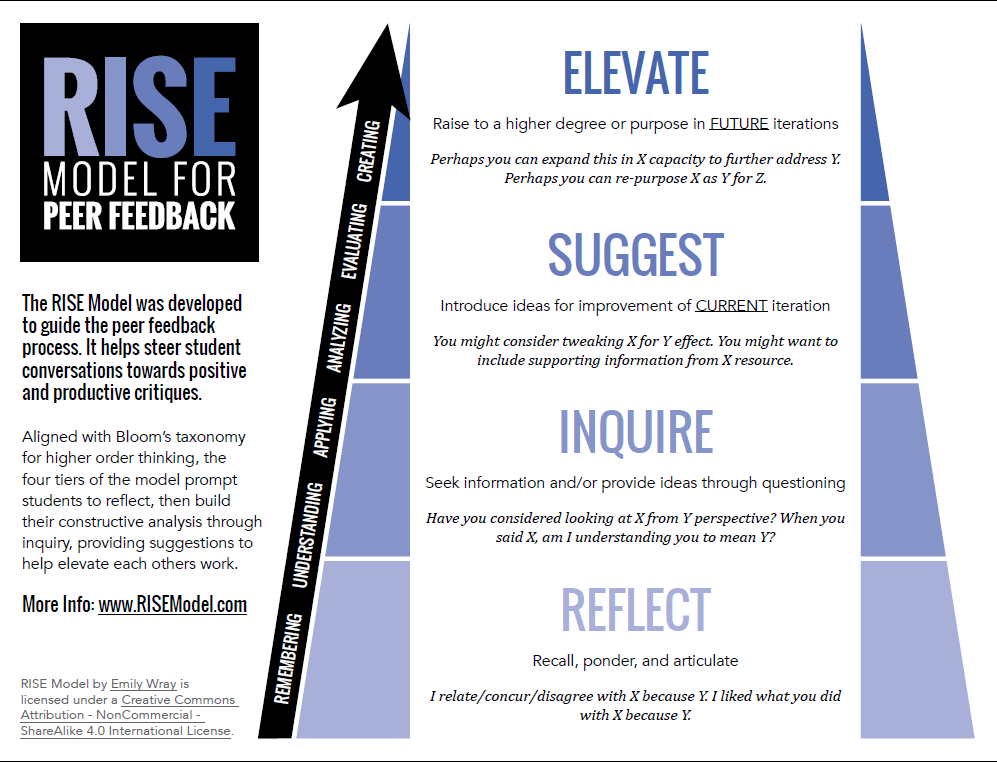
When implemented on a regular basis, reflection can help both students and educators gain deeper understanding of the learning process. Reflection brings to light crucial information that guides a process and builds a pathway for continued success.